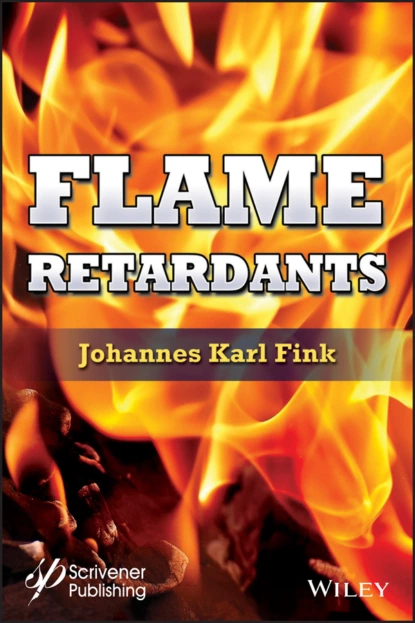Flame Retardants

Поделись книгой!
Автор: Johannes Karl Fink
Издательство: John Wiley & Sons Limited
Категория: Материаловедение
ISBN: 9781119752196
📗 This book focuses on the chemistry and applications of flame retardants for polymers and other materials. It starts with a description and types of flame retardants, as well as their properties and chemical structures, to include chlorine- and bromine-containing<br style="background-color: transparent; box-sizing: border-box; color: #455464; font-family: « sourcesanspro»,"helvetica neue","helvetica",arial,sans-serif; font-size: 12px; font-style: normal; font-variant: normal; font-weight: 400; letter-spacing: normal; orphans: 2; text-align: left; text-decoration: none; text-indent: 0px; text-transform: none; -webkit-text-stroke-width: 0px; white-space: normal; word-spacing: 0px;" /><br style="background-color: transparent; box-sizing: border-box; color: #455464; font-family: « sourcesanspro»,"helvetica neue","helvetica",arial,sans-serif; font-size: 12px; font-style: normal; font-variant: normal; font-weight: 400; letter-spacing: normal; orphans: 2; text-align: left; text-decoration: none; text-indent: 0px; text-transform: none; -webkit-text-stroke-width: 0px; white-space: normal; word-spacing: 0px;" />flame retardants, phosphorus-based flame retardants, nitrogen-based flame retardants, and silicones. Inorganic materials that serve as flame retardants, such as boron-based additives, graphenes, and others are discussed in detail.<br style="background-color: transparent; box-sizing: border-box; color: #455464; font-family: « sourcesanspro»,"helvetica neue","helvetica",arial,sans-serif; font-size: 12px; font-style: normal; font-variant: normal; font-weight: 400; letter-spacing: normal; orphans: 2; text-align: left; text-decoration: none; text-indent: 0px; text-transform: none; -webkit-text-stroke-width: 0px; white-space: normal; word-spacing: 0px;" /><br style="background-color: transparent; box-sizing: border-box; color: #455464; font-family: « sourcesanspro»,"helvetica neue","helvetica",arial,sans-serif; font-size: 12px; font-style: normal; font-variant: normal; font-weight: 400; letter-spacing: normal; orphans: 2; text-align: left; text-decoration: none; text-indent: 0px; text-transform: none; -webkit-text-stroke-width: 0px; white-space: normal; word-spacing: 0px;" />In addition, the following subjects are discussed in detail:<br style="background-color: transparent; box-sizing: border-box; color: #455464; font-family: « sourcesanspro»,"helvetica neue","helvetica",arial,sans-serif; font-size: 12px; font-style: normal; font-variant: normal; font-weight: 400; letter-spacing: normal; orphans: 2; text-align: left; text-decoration: none; text-indent: 0px; text-transform: none; -webkit-text-stroke-width: 0px; white-space: normal; word-spacing: 0px;" /><br style="background-color: transparent; box-sizing: border-box; color: #455464; font-family: « sourcesanspro»,"helvetica neue","helvetica",arial,sans-serif; font-size: 12px; font-style: normal; font-variant: normal; font-weight: 400; letter-spacing: normal; orphans: 2; text-align: left; text-decoration: none; text-indent: 0px; text-transform: none; -webkit-text-stroke-width: 0px; white-space: normal; word-spacing: 0px;" /> Flame retardant polymers<br style="background-color: transparent; box-sizing: border-box; color: #455464; font-family: « sourcesanspro»,"helvetica neue","helvetica",arial,sans-serif; font-size: 12px; font-style: normal; font-variant: normal; font-weight: 400; letter-spacing: normal; orphans: 2; text-align: left; text-decoration: none; text-indent: 0px; text-transform: none; -webkit-text-stroke-width: 0px; white-space: normal; word-spacing: 0px;" /> The mechanisms of flame retardants, such as flam
Мнения